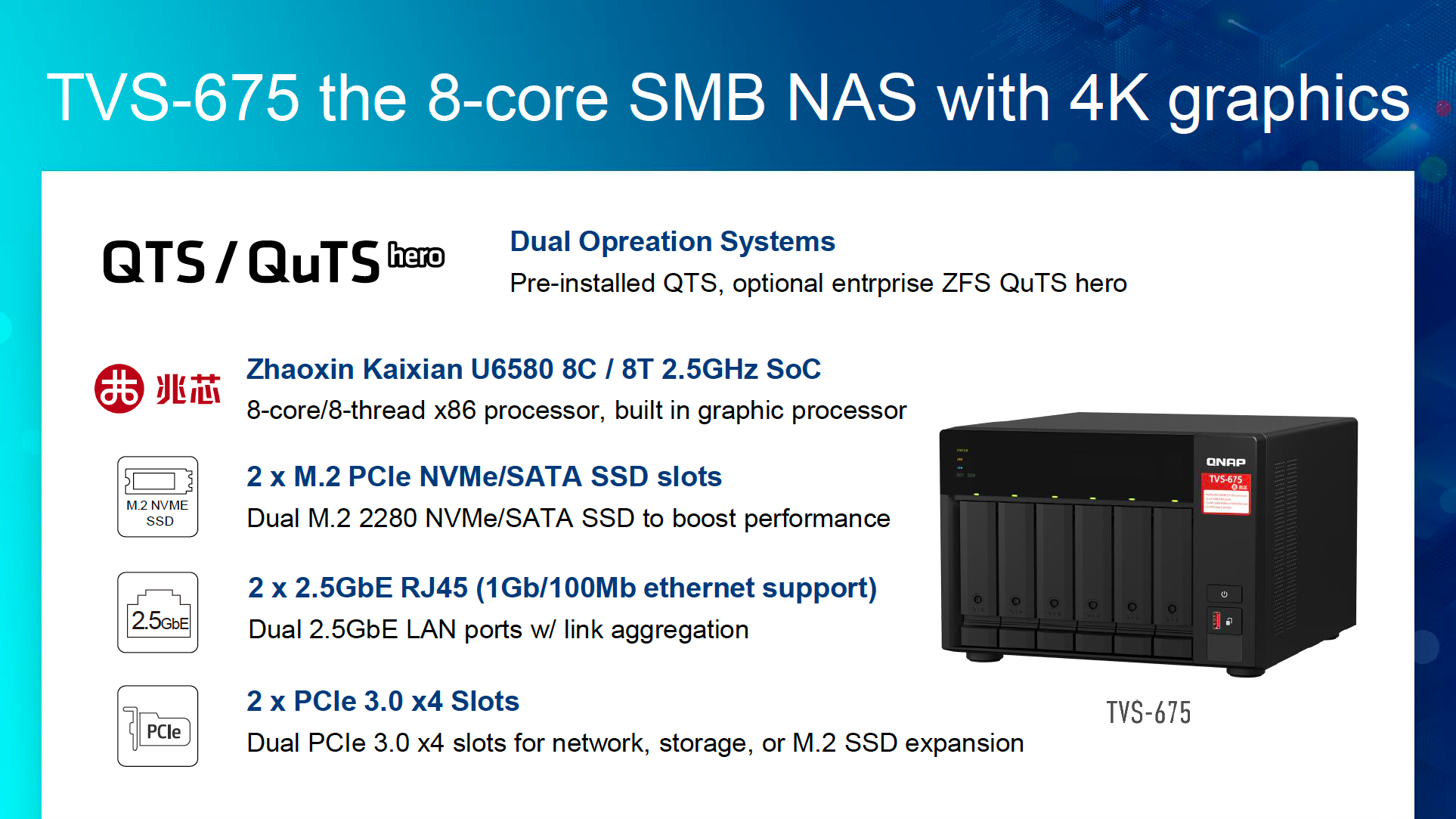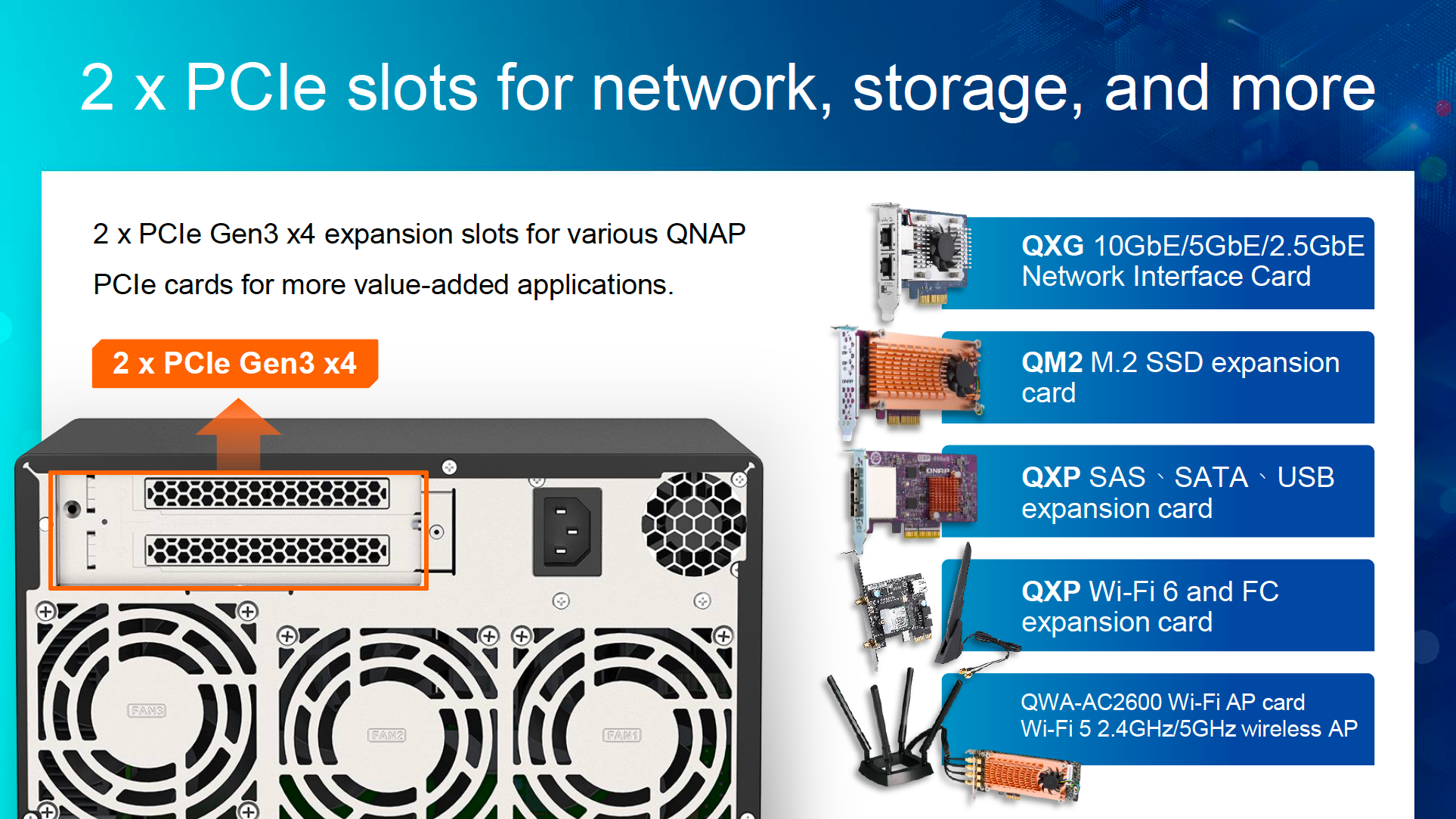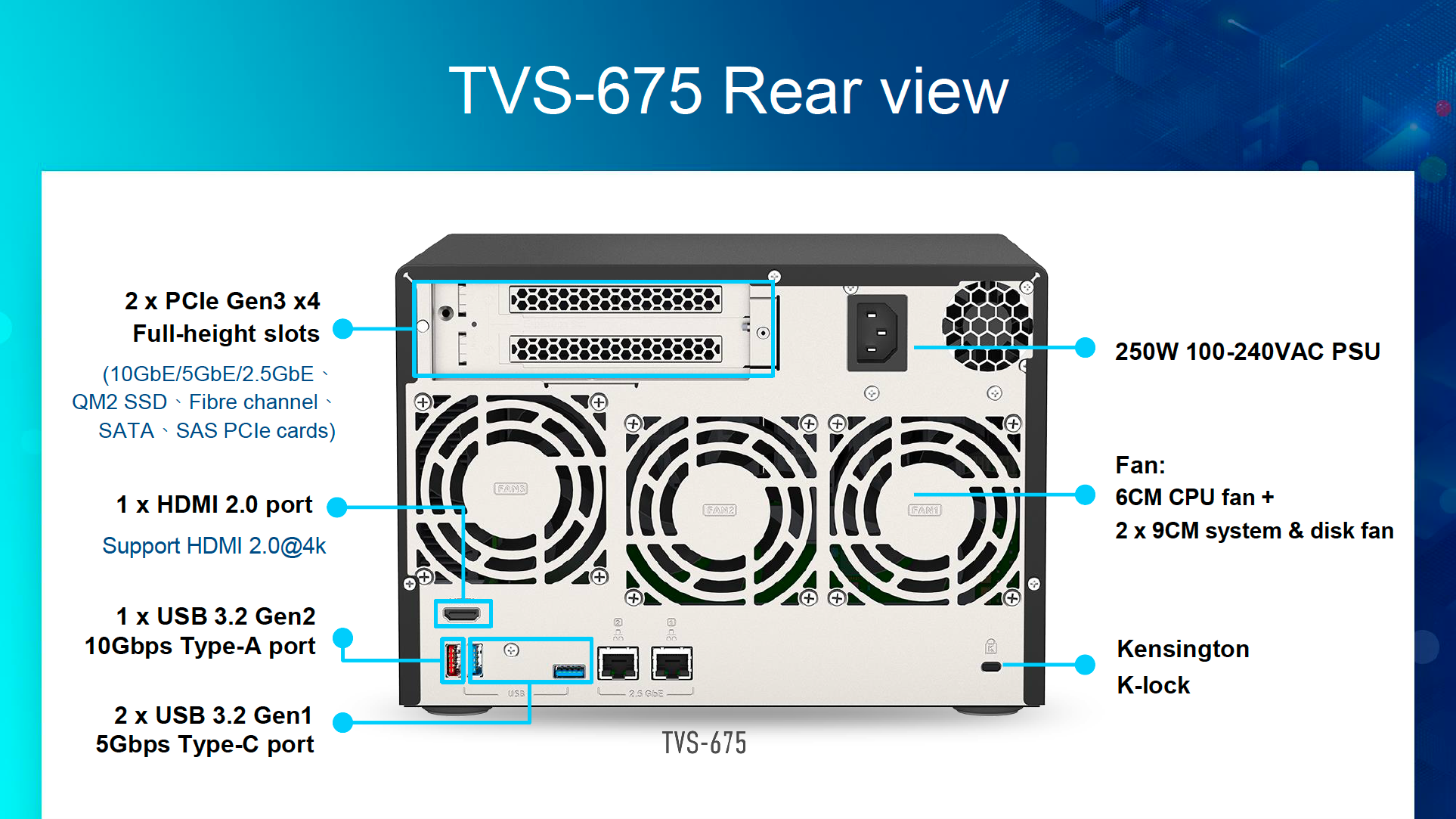Qnap Launches NAS With Chinese x86 CPU: Zhaoxin-Based Model Available Worldwide
Chinese CPU makes it into a generally available NAS
Qnap has quietly introduced its six-bay TVS-675 NAS powered by an eight-core Chinese x86 CPU designed by Zhaoxin, a joint venture between Via Technologies and the Shanghai Municipal Government. The NAS for small businesses (SMBs) is one of the first (if not the first) commercial devices set to be available in the U.S. and Europe, with the KaiXian KX-U6580 processor developed primarily for the Chinese market.
Zhaoxin was established in 2013 to build x86 processors in China for the local market and cut reliance on processors designed by AMD and Intel, but retain compatibility with the vast library of x86 software. The initial generations of Zhaoxin's products weren't successful because of utterly low performance, and the latest KaiXian KX-6000-series is also not a performance champion in general-purpose tasks (according to our review). But it looks like Qnap found the eight-core 2.50 GHz KaiXian KX-U6580 (with Zhaoxin C-960 graphics) good enough for its entry-level NAS.
Usually, Qnap's entry-level network area storage devices use Arm-based SoCs or Intel's Celeron SoCs powered by the company’s low-power architecture. NAS manage files, run light applications, or encode videos, so these inexpensive SoCs are good enough for their workloads. Zhaoxin's KaiXian KX-6000 can certainly run light apps, but as our review revealed, its media encoding performance is very low by today's standards, possibly because it lacks certain hardware encoders applicable to our test scenarios under Windows, whereas its general-purpose architecture is not exactly suited for such tasks. Keeping in mind that Qnap's TVS-675 NAS is aimed primarily at SMBs that hardly need it for media encoding, this drawback of the KaiXian KX-6000 probably won't affect users of this NAS. Furthermore, Qnap says that the SoC does support H.264/H.265 transcoding with its OS.
Speaking of the Qnap TVS-675, this NAS promises to provide SMBs high capacity, high performance, expandability, and rather fast network connectivity. The NAS has six hot-swappable 3.5-inch bays for high-capacity SATA HDDs, two SO-DIMM slots for DDR4 memory modules (the system ships with 8GB, but you can install up to 64GB), two M.2-2280 slots for SSDs supporting a PCIe 3.0 x1 or SATA interface, and two PCIe 3.0 x4 slots for SSDs or network cards. The unit also has two 2.5 GbE ports, two USB 3.2 Gen 1 Type-A connectors, two USB 3.2 Gen 2 Type-A ports, and one HDMI 2.0 output.
Qnap equipped the TVS-675 with three fans to cool down the PC-oriented SoC, six HDDs, two SSDs, and expansion cards. The company claims that the fans produce 23 dB of noise (though it does not disclose how it measured this level).
The Qnap TVS-675 ships with a choice of either QTS or the enterprise-grade ZFS QuTS operating system. QTS supports all the capabilities expected from an entry-level NAS, including, Qsync cross-platform file sharing (for Apple, Windows, IBM AIX, and Linux machines), Qtier caching technology that automatically moves frequently-used file/data to SSDs, snapshots, RAID modes, virtual JBOD, FTP server, HTTP access, and so on. The NAS also supports QNAP-certified first-party and third-party apps.
Qnap hasn't disclosed pricing yet, though this is a business-oriented machine with rich features and will be priced accordingly.
Get Tom's Hardware's best news and in-depth reviews, straight to your inbox.

Anton Shilov is a contributing writer at Tom’s Hardware. Over the past couple of decades, he has covered everything from CPUs and GPUs to supercomputers and from modern process technologies and latest fab tools to high-tech industry trends.
-
Brenza~ Why on earth would they do this?Reply
Free backup offered by Chinese gov once the new backdoors will get exploited? -
USAFRet Reply
$$Brenza~ said:Why on earth would they do this?
Tap into the quite large Chinese market.
Nothing is making you buy one.
I have a QNAP, love it.
I wouldn't buy one of these. -
escksu ReplyBrenza~ said:Why on earth would they do this?
Free backup offered by Chinese gov once the new backdoors will get exploited?
This is mainly meant for chinese market.... Anyway users are still screwed regardless of cpu... US made cpu means they will be exploited by USA gov instead.... -
escksu ReplyUSAFRet said:$$
Tap into the quite large Chinese market.
Nothing is making you buy one.
I have a QNAP, love it.
I wouldn't buy one of these.
At least you have a choice now. Previously you only get exploited by usa backdoors. So now, at least you get to choose chinese or usa backdoors. -
linchin Giving backdoor for small business class NAS to the chi-nazi chi-na CCP regime?Reply
I do not understand why QNAP make this move. QNap security is kind of questionable to begin with...
Luckily, we can still buy from Synology or make our own one. -
escksu Replylinchin said:Giving backdoor for small business class NAS to the chi-nazi chi-na CCP regime?
I do not understand why QNAP make this move. QNap security is kind of questionable to begin with...
Luckily, we can still buy from Synology or make our own one.
At least pple who bought them knows that americuns can't access these backdoors...... -
jkflipflop98 Replyescksu said:At least pple who bought them knows that americuns can't access these backdoors......
Do you get paid for this? Or do the guards force you to do this?


